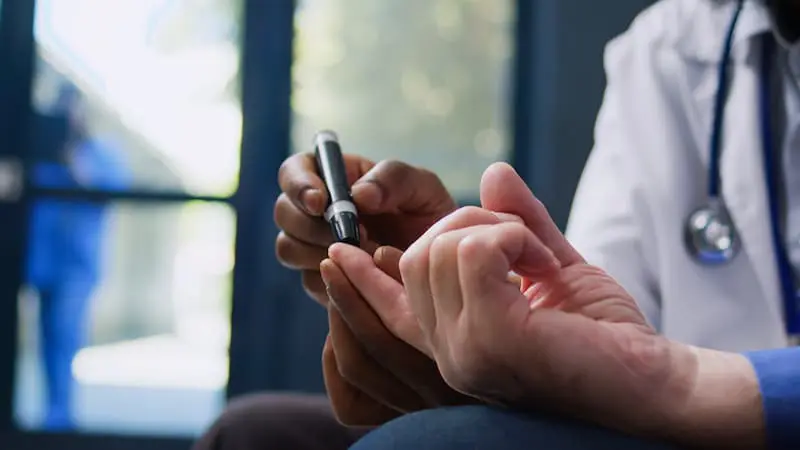Have you ever wondered what tests they run on the DOT exam urine sample? Does it check for drugs and alcohol? Does it test for kidney function? Do they check blood glucose levels?
The DOT physical exam is designed to determine if you are physically and mentally well enough to drive heavy commercial vehicles with sometimes dangerous loads through populated areas. Here’s a guide on why they include a urine test and what they are looking for.
Test Findings
Urine testing can provide physicians with information about many aspects of your health. This quick snapshot can alert them to known health conditions and those that may be lurking under the surface.
- Protein levels: Protein levels in urine are not affected by the protein you eat. Rather, it is a sign that something isn’t functioning properly. As there is a long list of possible suspects, additional tests are necessary to narrow down the cause.
- Glucose: If blood sugar gets too high, your body gets rid of excess sugar through urine. Elevated glucose is a sign that you may have uncontrolled diabetes. You may need to take steps to regulate blood glucose levels to prevent damage to various bodily systems.
- Specific gravity: Your kidneys dilute urine with water when healthy. If the weight of urine is heavier than water, your kidneys aren’t keeping up.
- Infections: The presence of nitrites or leukocyte esterase (part of white blood cells) can show your body is fighting infection. On further inspection, a culture test can reveal if it is a bacterial infection. This portion is not recorded in the DOT physical medical exam report form but can be valuable for your health.
- Blood: Detectable levels of red blood cells in your urine can also be an indication of a kidney or bladder infection or other health problems such as kidney stones or even cancer.
Collection Method
Someone will walk you through the process, but here is an overview:
- Plan on arriving 10-15 minutes early for your appointment.
- When you first arrive, you will need to present valid photo identification.
- After establishing your identity, they will have you fill out some paperwork. Now is the time to mention all your medications.
- They will give you a specimen cup with instructions on giving a clean sample and do a visual inspection to verify that you aren’t carrying in a clean urine sample to replace yours. (It happens.)
- Once you provide your sample, they will inspect it to verify that there are no abnormalities, and urine analysis will be done with a testing strip in the office.
Urine Test Refusal
There are people who refuse the urine test. That is your right. However, if you refuse to take the test, it counts as failing the test. You won’t be able to legally drive commercial motor vehicles until you submit a urine sample that passes the test. Refusal to take the test could cause repercussions from your employer and make you unemployable if not rectified.
Failing a Urine Test
Suppose your urine test produces a result that suggests a possible underlying health condition that could prevent you from passing your exam. In that case, you may be given a shorter renewal period, so the doctor can keep a closer eye on you, or you may need to get your medical condition under control before continuing. It depends on the health condition and severity.
Do Medical Conditions Disqualify Me If They’re Under Control?
It is rare for a well-controlled medical condition to be disqualifying. However, there are many conditions where the DOT medical examiner may need additional paperwork completed prior to certifying a driver. Also, for individuals who do not meet FMCSA standards for hearing or with a history of seizures, FMCSA may grant them an exemption for up to two years, which allows them to continue driving. Drivers with exemptions may be required to have exams more often so the doctor can monitor your condition.
The DOT medical examiner does not issue these exemptions. They verify you meet the criteria and indicate on the exam report any areas where you will need an exemption before receiving the medical card. The driver must then apply for the exemption. Upon approval of the exemption, the driver can get their medical examiner certificate and medical card.
It’s also worth noting that getting the medical examiner’s certificate requires you to be physically able to drive any commercial motor vehicle and perform all non-driving activities. Even if you aren’t required to lift objects at your current employment, you might need to if you change positions or companies. Thus, you must be physically able to perform all duties.
Your medical examiner can also request records from your current doctor or send you to a specialist for certain conditions to ensure the condition will not interfere with driving commercial motor vehicles.
Final Notes
You can request a copy of the medical exam report form regardless of who paid for the exam. Feel free to ask questions if you have any concerns. Schedule your DOT physical exam or renewal early to avoid delays that could interrupt your ability to work.
Video

Infographic
Ever wondered what tests are run on the DOT exam urine sample? Urine testing can provide physicians with a quick snapshot of your health, alerting them to known and potential health conditions. Learn more in this infographic.







